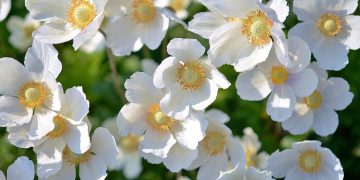Unwanted Visitors: Effective Strategies for Controlling Common Garden Pests
Gardening is a rewarding hobby and a great way to beautify your home. However, common garden pests can turn this delightful activity into a frustrating chore. From aphids to slugs, these unwanted visitors not only damage your plants but can also hinder the growth and health of your entire garden. In this article, we will explore effective strategies to manage various garden pests, ensuring your garden remains lush and healthy.
Understanding Your Garden’s Ecosystem
Before diving into pest control, it is crucial to understand that not all insects and creatures in your garden are harmful. In fact, many play significant roles in pollination and controlling the populations of harmful pests. Identifying which creatures are beneficial and which are detrimental is the first step to effective garden management.
Identifying Common Garden Pests
Some of the most common garden pests include aphids, slugs, snails, Japanese beetles, and spider mites. Each pest has distinct characteristics and affects your plants differently. For instance, aphids suck sap from plants, weakening them and spreading diseases. On the other hand, slugs and snails chew on leaves, flowers, and fruits, leaving unsightly marks and potentially killing younger plants.
Organic Pest Control Methods
Focusing on organic pest control methods not only helps keep your garden safe for pollinators and other beneficial creatures but also ensures that your family and pets are not exposed to harmful chemicals.
Natural Predators
Introducing or attracting natural predators into your garden is an excellent way to control pest populations. Ladybirds, lacewings, and certain types of birds can significantly reduce the number of aphids, while nematodes are effective against slugs and snails. Creating a garden that attracts these predators involves planting nectar-rich flowers and providing shelters for these creatures.
Barriers and Traps
Physical barriers such as copper tape can deter slugs and snails, while floating row covers protect your plants from a variety of insects. Additionally, pheromone traps or sticky traps are effective in catching and monitoring levels of specific pests like Japanese beetles and spider mites.
Homemade Pest Sprays
Homemade sprays can also be a safe and effective way to control pests. A simple soap and water solution can help manage aphid infestations, while garlic and chili sprays can deter a host of pests. Always test these solutions on a small part of the plant first to ensure they do not cause any damage.
Maintaining Healthy Soil
One of the most overlooked aspects of pest control is soil health. Healthy soil leads to strong plants, which are more capable of withstanding pest invasions and diseases.
Adding Organic Matter
Regularly adding organic matter, such as compost or manure, improves soil structure, drainage, and nutrient content, all of which help increase plant resilience. Healthy plants are naturally less appealing to pests and better able to recover from attacks.
Proper Watering and Fertilization
Overwatering or under-watering can stress plants, making them more susceptible to pests. Similarly, excessive use of synthetic fertilizers can promote lush growth that attracts aphids and other pests. Using organic fertilizers and providing consistent water will keep your plants healthy and less inviting to pests.
Chemical Control Strategies
In cases where infestations are severe, chemical controls may be necessary. However, these should be used as a last resort and in a way that minimizes harm to beneficial insects and the surrounding environment.
Selecting the Right Chemicals
Opt for targeted pesticides that are designed to handle the specific pests in your garden while causing minimal harm to other creatures. For instance, insecticidal soaps can be effective against soft-bodied insects like aphids and spider mites, without harming larger insects or birds.
Application Tips
When using chemical pesticides, timing and application are critical to maximize effectiveness while minimizing environmental impact. Always follow the manufacturer’s instructions, apply during cooler parts of the day or when pollinators are less active, and avoid windy days to prevent drift to non-target areas.
Conclusion
Dealing with common garden pests requires a combination of good gardening practices, organic pest control strategies, and, when necessary, careful use of chemical treatments. By understanding the ecosystem of your garden, you can protect your plants from pests more effectively and maintain a healthy, vibrant garden. Remember, the best defense against garden pests is a proactive approach that includes regular monitoring and maintenance, which keeps both your garden and its larger environment thriving.
Further Information and Resources
For more detailed information on specific pests and organic gardening tips, consider consulting resources like your local extension office or gardening clubs. Online forums and gardening blogs can also be invaluable sources for dealing with plant-specific issues and region-specific pests.
By employing these effective strategies and maintaining a commitment to ecological balance, your garden can flourish, largely free from the frustrations of common pests.























































